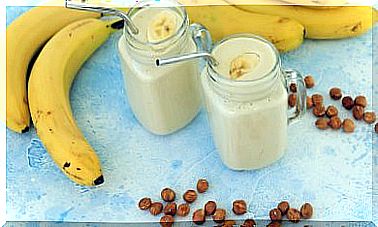How Your Brain Reacts When You Stop Taking Sugar
We are truly fascinating beings. We have a privileged mind that is capable of performing really complex operations, although we see them in a simplified way by repeating them every day. However, we can develop addictions. Today we will talk about sugar addiction.
Thoughts, emotions and feelings coalesce and make up our own chaos in a kind of cloud that only we have access to.
However, despite the perception of immateriality that we have about the mind, it works thanks to the fact that behind it there is a complex physical structure that supports it: our brain.
The functioning of this organ depends on the amount and type of nutrients that reach it. Well, in this article we are going to talk about how it affects our brain if we reduce or suspend the consumption of sugar.
In a way, it is practically impossible to eliminate the consumption of sugar since, in greater or lesser amounts, it is part of many foods that make up our basic diet, either in order to preserve them better or to obtain a more attractive flavor.
Sugar as an addictive substance
We know more and more about how our brain behaves, especially in those fields in which knowledge can have a clear practical application. Thus, one of the areas in which we have advanced the most is that of addictions.
Sugar is known to work by activating the same neural circuits as other harmful substances, which fit more closely into the social prototype of a drug. In fact, people who have consciously considered banishing sugar from their lives report that it is a costly experience at first.
On the one hand, they find that many of the foods they eat regularly now go beyond what they have decided to allow themselves. Also, the list of forbidden foods is larger than you might initially suspect.
Many preparations that could do without sugar do not, since social awareness about the danger of abuse of this substance is nil. This causes that when we read the word “sugars” in the list of ingredients of a food we do not activate any type of alarm signal.
Another difficulty that presents the fact of dispensing with sugar is that it is an ingredient and not a food itself. That is, it can make us have to give up, for example, that mid-morning coffee that we want to drink so much because without the magic component we no longer like it.
Finally, leaving aside the difficulty of almost completely redoing the shopping list, people who have decided to follow a sugar-free diet have the feeling that their body is beginning to protest because it is missing “its drug.” What occurs with other drugs we call withdrawal syndrome.
To alleviate it, the tendency they experience is to increase the proportion of carbohydrates they eat, trying to somehow alleviate the caloric loss caused by giving up.
The largest number of studies in this regard has been carried out with rats. The typical construction of these experiments usually follows the facilitation-deprivation protocol. That is, for a few days they are supplied with a sugary solution and, later, it is withdrawn.
In the withdrawal period, the researchers observed different physical symptoms in the rats: tremors in the legs, shaking of the head or chattering of teeth. Furthermore, at the motor level, a significant decrease in mobility was observed.
What does sugar do in our brain?
The answer is clear: the moment we consume it, it gives us pleasure. That sweetened coffee, that piece of chocolate or that apple pie causes our nucleus accumbens to start releasing dopamine in large doses.

It tells us: “How rich this is” , while creating an intense memory of the sensation obtained. As a consequence, it makes us want to repeat the experience when we approach that type of food.
As we mentioned, sugar produces withdrawal, just as it happens with other drugs. That is, it causes us to release a greater amount of dopamine than is then collected by the receptors.
This causes dopamine to stay in the interneuronal spaces, increasing the baseline and requiring an increasing amount of dopamine to achieve the same effect.
Studies confirm that the amount of sugar we eat on average daily is 10 times higher than healthy.
What do we gain when we cut back on sugar?
Decreases the accumulation of fat
The decrease in sugar consumption makes our body get used to obtaining energy from other sources, such as fat. By using it we will prevent it from accumulating.
You make your circulatory system stronger
Studies tell us that too much sugar increases the risk of heart disease.
The feeling of satiety comes before
The decrease in sugar consumption means that food is eaten that has a greater satiating power and that, in proportion, are less caloric.
You protect yourself from cancer
There are studies that highlight that sugars in the intestine favor the formation of an endocrine hormone called gastric inhibitory peptide (GIP). This hormone raises the levels of insulin that are released in the pancreas, thus increasing the possibility of cancer cell formation.
You take care of your liver health
An excess of different sugars, such as fructose and glucose, can have a toxic effect on the liver, even similar to that caused by alcohol.
Your attention, your memory and your ability to react return to their being
Sugar slows down our cognitive performance and impairs our psychological abilities.
The aging speed of our nervous system slows
This system loves sugar, so if we don’t over-feed it, its growth will be more gradual. In addition, we will accustom it to operating at the same performance with fewer resources to consume.
Living “without” or “with less” sugar is not easy. If we try our body will protest; But if we persist, we will eventually experience all the benefits of living with a controlled blood sugar level. Seen like this, the truth is that many sweets are bitter.









